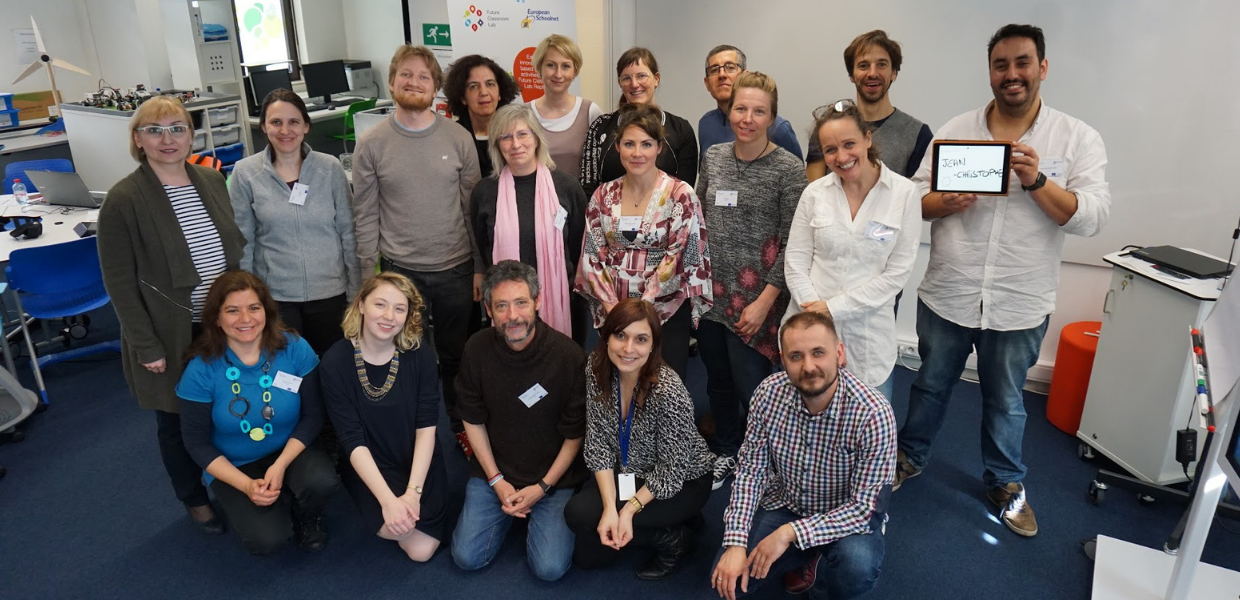Embedding digital culture in education
2,000 teachers from 45 countries upskill with ‘Europeana in your classroom’ MOOC delivered in three languages.

- Title:
- The Europeana Teacher Developer Group
- Creator:
- Europeana Foundation
- Date:
- 2018
- Institution:
- Europeana Foundation
- Country:
- The Netherlands
- Copyright:
- CC BY
Cultural heritage has a crucial role to play in education. Material from Europeana Collections provides multiple perspectives on historical, political, economic, cultural and human developments across Europe and beyond. Europeana Education aims to enrich digital learning materials with this diverse cultural data and inspire learners of all ages. There is a continued high interest in the service Europeana provides to educators and in the use of the educational material developed.
First run in 2018, the Europeana Education Massive Open Online Course, ‘Europeana in your classroom’, created with European Schoolnet (a network of 34 European Ministries of Education) was updated. The Europeana MOOCs (in English, Spanish and Portuguese) were well-received with a total of 2,000 participants from 45 countries and 700 certificates (which corresponds to an average completion rate of 30%, and far exceeds the 10% average of other MOOCs). MOOC participants’ testimonials confirmed the positive impact of this learning resource with regard to pedagogical innovation and capacity building. The MOOCs will run again in 2020 in the original three languages, plus Italian and French.
In collaboration with European Schoolnet , the Europeana Teacher Ambassador network was established and the Europeana Teacher User Group expanded. In the last year, The Europeana Teacher Ambassadors reached over 509 teachers and about 13,000 students with their 24 webinars. The Europeana Teacher User Group created 213 new learning scenarios with Europeana data as well as 85 stories of their implementation by teachers in the classroom. These resources are featured on the Teaching with Europeana blog.
Euroclio, the European Association of History Educators, published 12 new source collections and 12 new eLearning activities using Europeana data on Historiana for history educators across Europe. They cover a wide range of themes, including Napoleon, medicine and anatomy, Renaissance, the Industrial Revolution and more. The teacher training guide on how to use online tools and cultural heritage data to promote historical thinking was also updated.
As part of our efforts towards education, the Portuguese Direção-Geral da Educação (DGE) integrated in their portal a search bar which allows their national community of educators to retrieve relevant Europeana content via the Europeana API. In addition, the Finnish educational publisher Itslearning now offers more resources with Europeana content to their users by complementing the existing Europeana API with 12 Historiana resources (six of which with Europeana content) in their virtual library.
HackCultura 2019 campaign was a joint initiative of several Italian educational partners and Europeana Foundation, with DiCultHer in the lead, which ran between October 2018 and April 2019. The campaign invited Italian students to create multimedia projects with cultural content. It was officially closed with an award event within the Fourth Week of Digital Cultures in April in Matera, Italy. The #ImparaconEuropeana challenge within this competition awarded certificates to six projects involving 94 students from Calabria, Puglia, Emilia Romagna and Molise. These projects were published on the ICCU platform.
